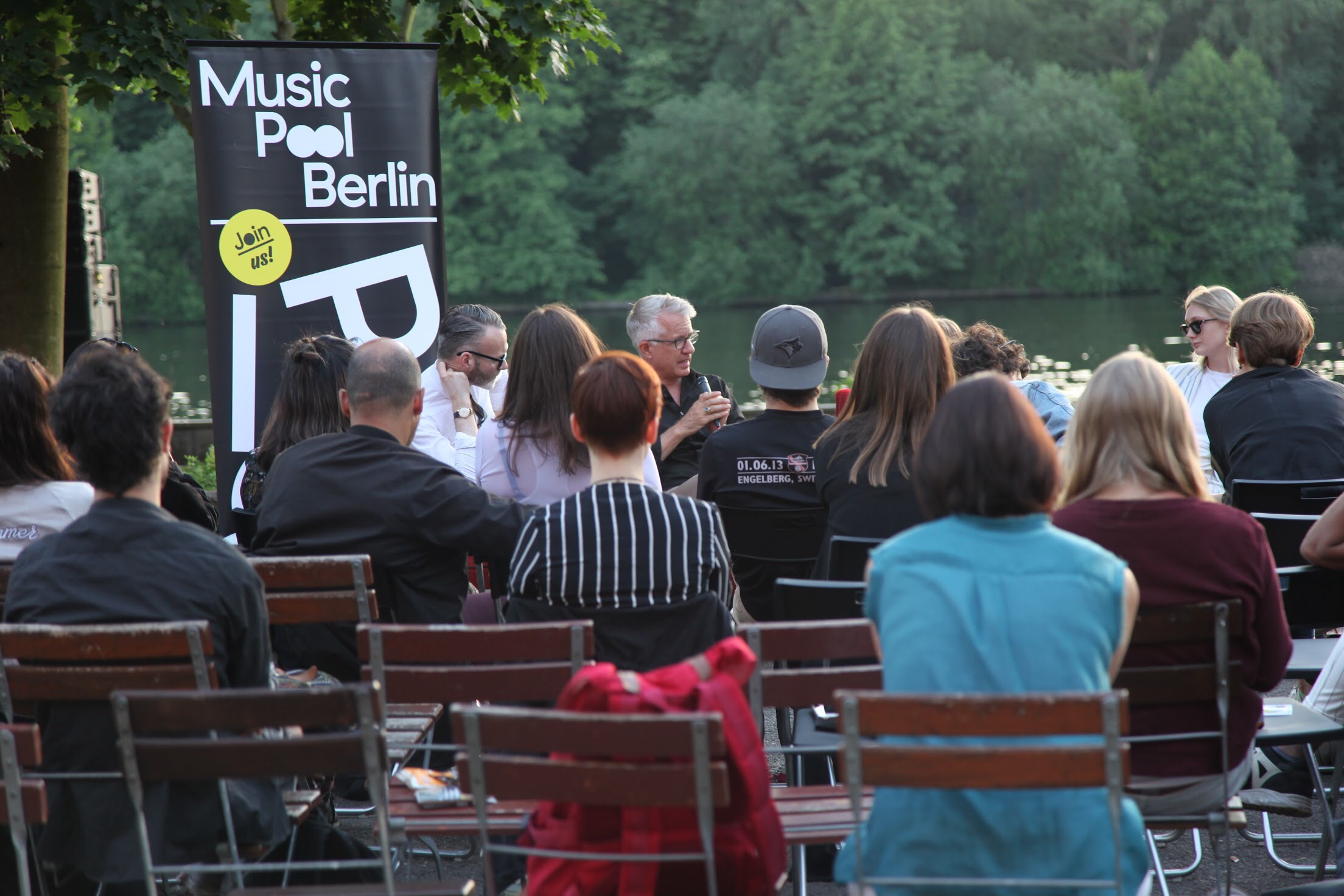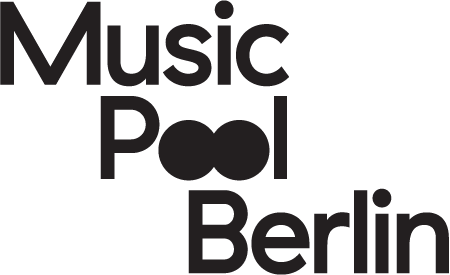News
Food for thoughts: things we learnt at our Mental Health Community Evening with DBS Music (pt.1)

As you might already know since you've landed to this blog entry, or if you don't know already as this is your first time visiting this website, Music Pool Berlin is an organization that deals on a daily basis with the vast variety of topics concerning the professional lives of musicians - anything which is not the creative work per se: from insurance and taxes to working with labels and managing your own bookings to rights management. One way in which we do so, is via our monthly Community Evening events, in which we organize panels and talks on music and creativity related topics, inviting each time a different set of speakers, all professionally involved with different aspects of the music business.
Our June Community Evening was dedicated to a very delicate topic: mental health and creativity. Inspired by the reading of the Help Musicians UK survey, we decided to partner with dBs Music, a Berlin based music production and sound engeneering school who has in the latest months organized a series of events dedicated to the topic of mental health.
If you've missed out this event for whatever reason, don't panic! Creative writer Dee Cunning has summed up for you a few interesting takes that emerged from our discussion. You can read an extract from the article below, and continue reading the full feature via the dBs Berlin blog here, where the piece of writing reported below was originally published.

5 Things We Learnt at Our Music Pool Berlin Mental Health Panel
You sound unique. You're made from pure creative potential. You can stand alone or be part of a symphony. To the opportunistic music business, that makes you an instrument to be played; to over-pluck till destruct making sweet money music; to neglect to go out of tune. In its obdurate scheme, it is the necessary thumb to your melody – but that's just not true. Because you’rethe musician, and ultimately you are you.
It’s no secret: although it’s amazing to be professionally engaged with your passion, the very nature of the music industry brings with it a framework that makes us vulnerable as human beings. As Help Musicians UK’s recent study reported, musicians are three times more likely to suffer from depression or anxiety than the average (UK) population.
Factors at play include precariousness of living conditions, merging of personal identity with profession, working late and inconsistent hours, alcohol and drugs, heavy touring schedules and simply never switching off. But as we learnt at this year’s dBs Dialogues mental health series, coming together to talk about these issues – taking ownership of them, even – is the best way to bring about change.
Last month, we continued the conversation in a collaborative panel talk with Music Pool Berlin, an invaluable organisation which supports musicians with practical resources and advice. “When I read the study and heard that dBs Berlin was organizing an event series on the topic,” said our moderator, cultural producer and curator Andrea Goetzke, “I got the idea to also organise one of our Music Pool Berlin community evenings on the topic of mental health and music.”
Our fantastic panellists were: electronic artist Emika, artist manager and agency owner Andy Inglis, !K7 head of artist management and former label owner Rachael Patterson, and philosophical advisor and coach Florian Goldberg. Bringing together extensive knowledge from all corners of the music industry, they discussed the health issues that arise, how we can take better care of ourselves and others, and what we can do to turn detrimental working conditions and structural issues on their head.
Read on for the first of our two-part round-up.


You are not your music
You put your heart and soul into your music – we get it. But that does not mean you should be defined by it. As the Help Musicians UK report put it, the way that musicians come to embody their work, arguably “renders them particularly vulnerable.” It's the tipping point where a career becomes all-consuming, criticism turns personal, or a personal brand becomes a cage. But remember, you are a human first and a musician second.
As Emika pointed out, finding your brand is a great form of self-expression: “In the beginning, so much of it is about settling on an identity that you feel is yours.” But what happens when that identity becomes a feedback loop, or if you disassociate from it after it's brought you success? “That started to get really unstable for me,” she continued. “Getting internationally recognised for my music, I started to realise that I was surrounded by a lot of people I didn't understand.”
But in an industry where branding is everything, is there any way we combat this? According to Emika, it's all about keeping a distance: “Emika is like a glove,” she said. “I created certain guidelines that I could put on and take off.” One of the rules Emika is most strict about is not sharing anything personal online: “I don't focus on what I share with people around me; it's around my music.” And Andy agreed: “It's very healthy to be able to separate yourself from your public-facing career or identity, even if they are linked in every way.”


Be the cause, not the effect
Not feeling in control of your work or your life can be a great source of depression and anxiety for anyone. And in the music industry, facing pressure from managers and labels to relentlessly create, tour or live up to a certain sound, it's a feeling all too familiar. “If we are pushed to be just the effect [rather than the cause], and if we allow that, we start to feel bad,” Florian asserted. “To really understand what it means in your personal life – to ask where am I at the source of things? and where am I at the effect of things? – this is especially important for an artist.”
This is something that Emika has personally experienced. So anxious about an upcoming Glastonbury gig that she had to medicate in order to perform, Emika reflected, “I recognised that there was a lot of people around me that pushed me to do that and that I really needed to change my entire life.”
The best way to regain control over your life, Florian advised, is “for an individual is to ask, what can I do to change things where I am?” “For artists, it's good to make your own plan,” he continued, “then do it and follow it up and find the people who are willing to collaborate with you.” In the end, it's all about prioritising your own well-being. “If you keep your eyes on the prize, it really doesn't matter what comments people throw at you,” Emika added, “you have to just be focused on what you want and know why you're doing it.”


All pictures by dBs Berlin.
